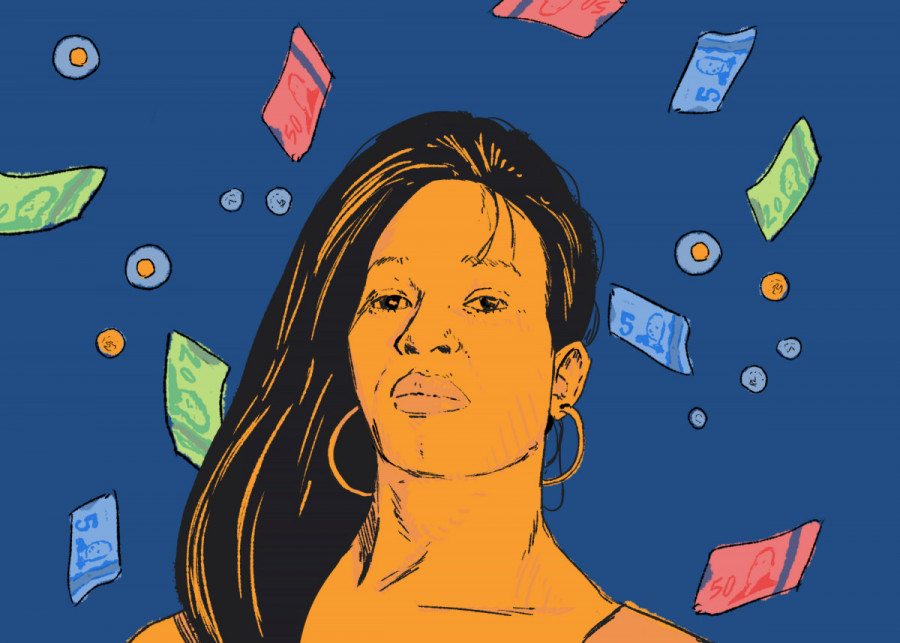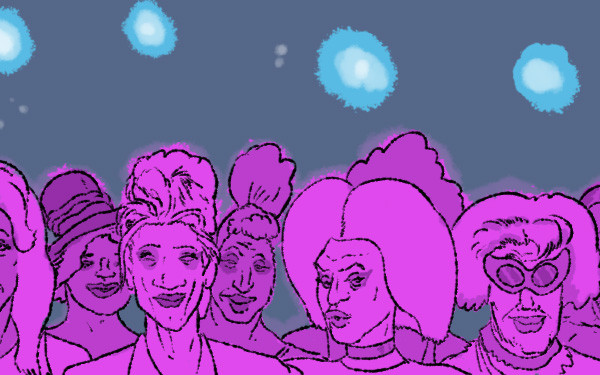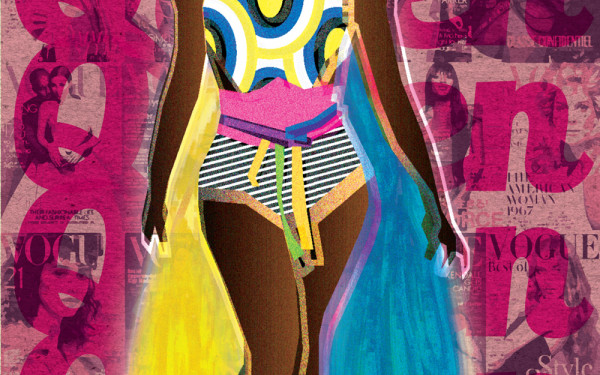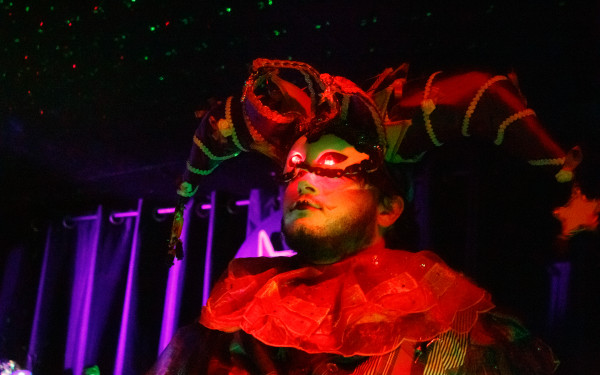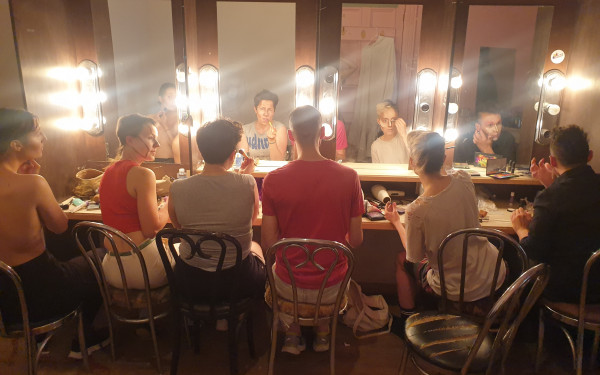Pay Black trans women for their work
Your performativity is getting old
Elle Barbara is a transgender woman of many talents. Singer, songwriter, artist, speaker, and community organizer, they are a prominent figure in Montreal’s ballroom community as the mother of the House of Barbara, a drag ball competition team.
In a five-minute video that went viral on Instagram, Barbara announced they were cancelling their performance at an event taking place on Aug. 16, hinting at Occupy the Hood’s fourth event, a “Pride Edition Special.”
“It didn’t feel right for me to be part of an event I felt tokenized in and which I felt was extremely performative,” said Barbara in the IGTV video.
Occupy the Hood is a non-profit fundraiser that hosts demonstrations against systemic racism and police brutality in Canada while funding various non-profit organizations. Their open-air and joyful gatherings with live DJs have attracted hundreds of supporters, and their campaign, with an initial goal of $5,000, has raised $27,000 to date.
The group has continuously invited Black artists to perform at their events since they started in June, but when they asked Barbara to play a 45-minute DJ set, it wasn’t until the performer agreed that one of the organizers confirmed it wasn’t a paid gig.
Torn between wanting to help the cause yet feeling uncomfortable with not being paid for their time and effort, Barbara reflected on the message they were putting out.
After struggling to reach an agreement with the organization, Barbara said one of the organizers suggested monetary compensation based on the quality of the singer’s performance—an act Barbara described in their widely-shared video as “equally, if not more absurd.”
“It would kind of be like adding insult to injury to pay me based on the quality of my performance because if you don’t pay me a lot, what does it say about the work that I do?” said Barbara in an interview with The Link.
The group later denied they offered to pay artists based on performance and pointed to a “miscommunication” in the event’s booking.
The Link reached out to Occupy the Hood to provide comment but did not hear back.
_900_506_90.jpg)
Artists are regularly asked to work for free in exchange for exposure—the underlying message being that once an artist has had significant exposure, only then are they worth being paid.
This common issue affects emerging and established artists, so many struggle with advocating for themselves and will accept working for free to avoid the intimidating and awkward conversation about getting your craft’s worth.
What does this say about how we value artists? And in this case, what does it say about how we value Black transgender artistry?
From Words to Actions
Aside from the idea that artists should always be paid for their craft, we must be aware of the transgender wage cap that significantly affects trans women.
While working transgender men earn more after their transition, the average earnings of transgender women drops by nearly a third, according to a study published in the B.E. Journal of Economic Analysis & Policy in 2008.
This is why we need to put money where our mouth is regarding supporting Black womxn. Barbara expresses that even in discussions about Black empowerment, Black femme wealth is still overlooked.
“What about Black joy and Black abundance?” asked Barbara. “It’s cool to see Black Lives Matter, but you could just give money directly in Black women’s hands as a form of reparation, as a way to enable the development of their professional practice,” they added.
Barbara also expressed feeling tokenized in the event where most of the DJs were “het or het-passing,” they said.
“Occupy the Hood wrote a caption about Black Pride having been spearheaded by Black trans women and how Black queer people have always been on the front lines. And yet, myself and DJ Nalee, a Black lesbian, are only written as a footnote,” said Barbara about the event’s flyer who listed Barbara and DJ Nalee as the last two performers.
While cishet people are welcome to participate in Pride events as a form of allyship, it is vital to ensure that the event is representative and inclusive to the people it is advertised to celebrate. Not doing so only creates an image of performative brand-building and allyship, as well as tokenizing clout-chasing.
Performative allyship is currently a widespread issue—think of the counterproductive black squares for “Blackout Tuesday” that flooded Instagram in June. What was meant to be a day of reflection ended up spamming feeds, making important information and resources related to anti-police brutality demonstrations harder to find.
A week after the event, Occupy the Hood publicly apologized to Elle Barbara and the POC LGBTQ+ community for the “misunderstandings and failures of the Pride mobilization.” They added that after taking into consideration people’s reactions, all artists that had participated in their past demonstrations had now been remunerated.
Barbara told The Link that Keita had provided them $300 in compensation, nearly two weeks after the event.
Amplifying Black Trans Voices
Barbara says they experience daily violence simply based on existing as a Black trans woman.
The intersection of gender-based discrimination and racism puts Black trans women at a disproportionate risk of social discrimination, violence, and exploitation.
A study by Egal reported that 74 per cent of trans students in Canada have been verbally harassed, and 37 per cent have been physically assaulted because of their gender expression.
While initially refusing to pay a Black trans woman goes against the very same Black Lives Matter movement Occupy the Hood is a part of, the group has supported and prioritized allocating funds to groups that would benefit marginalized communities such as Hoodstock and the Native Women’s Shelter.
In their public apologies, the organization said they failed to revise their volunteer policy as they grew financially. However, if their mission is to redistribute funds towards marginalized and racialized people, they should’ve thought about paying the racialized performers they capitalize on from the beginning.
We need to remember how Elle Barbara felt alone in an event promoted as a gathering where Black trans-feminine voices should be highlighted, celebrated, and loved.
We need to find genuine ways to promote the emancipation of Black non-gender-conforming people, and paying them fairly for their labour instead of utilizing them as decorative tokens is one of them.
Lack of structural inclusion and diversity are acts of violence. While Occupy the Hood took accountability for their actions, let this be a teachable moment for all allies, activists, and grassroots organizations to work towards a more vigorously inclusive future.
Editor’s Note: The Link acknowledges that it benefits from unpaid labour.

